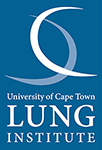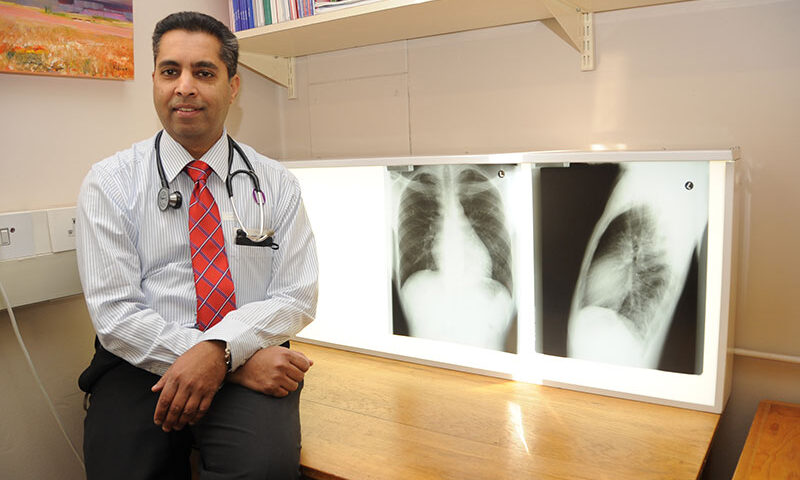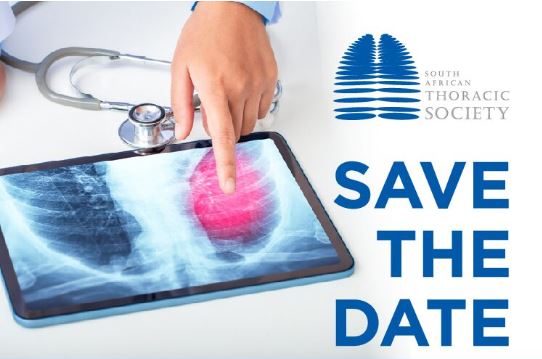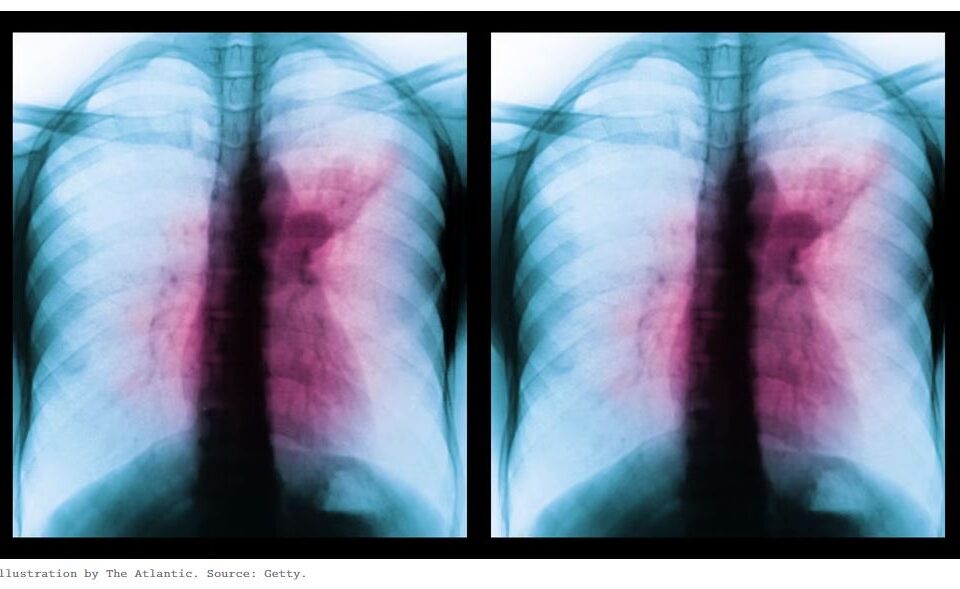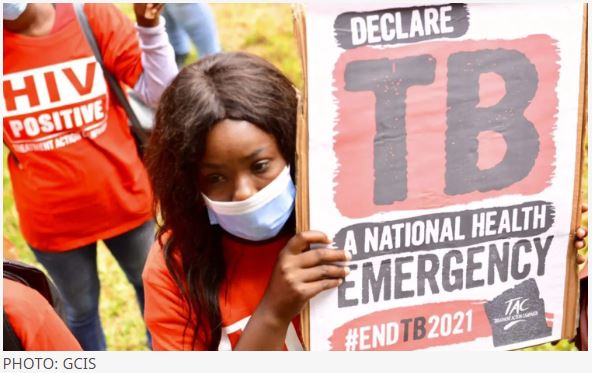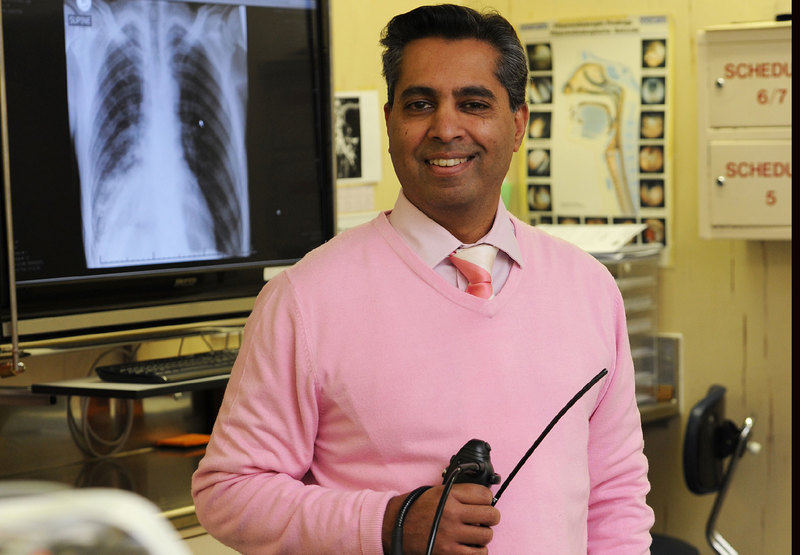


Community-based TB testing intervention enters critical multilayer phase
17th May 2021


UCT NEWS
8th June 2021UCT News | 19 May 2021 | Niémah Davids
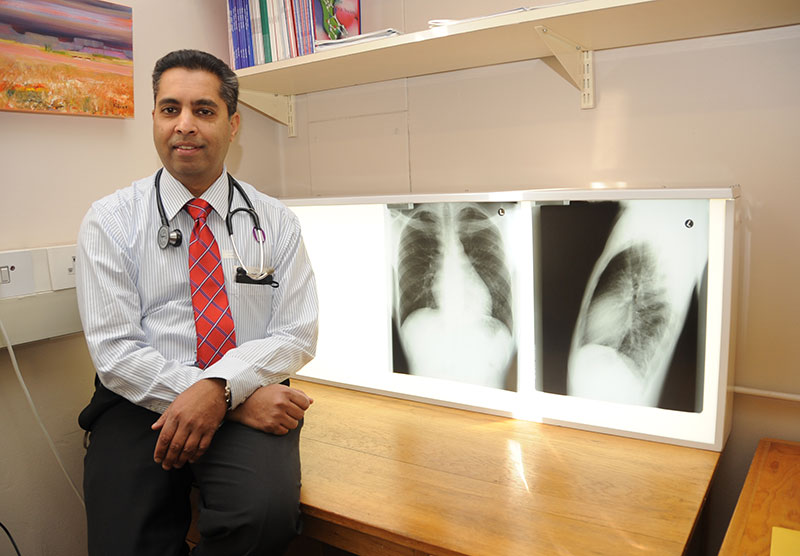

Photo: UCT News
The ground-breaking XACT Model project, which seeks to advance community-based active case finding (ACF) of tuberculosis (TB) using point-of-care molecular technology, has now entered a critical multilayer phase in four sub-Saharan African countries, including South Africa. The project is set to revolutionise TB diagnosis and treatment and take diagnostic tests out of the laboratory and into the community.
Spearheaded by a team of researchers at the University of Cape Town’s (UCT) Centre for Lung Infection and Immunity (CLII), the project is the first of its kind for South Africa. TB is said to be one of the most common causes of death in South Africa, and disproportionately affects economically active young adults. But according to Professor Keertan Dheda, the head of the CLII, two out of five TB cases in patients around the world go unreported or undetected.
He said that the First National Tuberculosis Prevalence Survey South Africa 2018 revealed that more than half of the TB patients identified during a door-to-door survey had negligible or no symptoms at all. Some TB patients, he explained, only seek care when they feel ill. By then, 95% of the onward TB transmission has already occurred. On average, scientists predict that one TB patient will infect 20 to 25 other people before they eventually visit a healthcare facility for treatment.
But the XACT model seeks to nip it all in the bud: inside the futuristic TB testing model, health professionals make use of a portable, battery-operated molecular tool, GeneXpert Edge – a standardised testing device that detects TB DNA in sputum. The testing is done in a low-cost, panel-van-sized mobile clinic (situated in Mitchells Plain and the Klipfontein District in Cape Town, for the South African leg of the study) and is staffed by two healthcare workers.
“Moving TB diagnostic tests out of the laboratory and into the community, which we refer to as ACF, will short-circuit the transmission cycle and substantially curb transmission overall. As a result, we’ll be closing the tap rather than mopping the floor,” Dheda said. The R100 million project will enable researchers to evaluate the feasibility and effectiveness of the project in four sub-Saharan African countries: South Africa, Mozambique, Zimbabwe and Zambia. Thanks to the XACT-19 study, Dheda said that for the first time his team will be able to quantify the infectiousness of community-based cases of TB, using cough aerosol droplets sampling technology. This, he explained, will enumerate the culturable, infectious droplets emitted by each case of TB.
For a balanced perspective, the group recruited to participate in this study will be divided into two parts: part one will screen 20 000 participants to determine whether diagnostic testing should take place on site in the mobile clinic using the GeneXpert Edge device, or whether participants’ sputum should be sent to a centralised laboratory for testing instead. Part two will sketch a detailed picture in survey format on the infectiousness of community participants, using cough aerosol technology. Dheda said the team has recently added a third layer to this in-depth study and has received an additional R100 million in funding from its sponsors. This leg of the project, referred to as the XACT-19 study, will screen roughly 80 000 participants across the four sub-Saharan African countries.
Participants will be screened and tested randomly using the GeneXpert Edge device, while other participants will be screened using a chest X-ray. Only test participants who present with chest abnormalities following the X-ray will be escalated for further testing in this
randomised controlled trial. In addition, a special process powered by artificial intelligence will also be used to screen asymptomatic participants to determine whether they need the GeneXpert Edge test or not. As part of this study, Dheda, in collaboration with Professor Jonathan Blackburn, the head of the Division of Chemical and Systems Biology at UCT, has developed a urine-based screening test for TB. The test is currently being evaluated and validated, and studies are under way to establish whether it will be a viable alternative (compared to an X-ray) for targeting patients with TB.
“If it all goes according to plan, then this test will be much simpler. It will do away with the need for portable X-ray equipment, extra staff, radiation, etc. It will also circumvent one weakness associated with X-rays – they fail to pick up TB if it’s located outside of the lungs,” he said. Dheda said that the XACT project also plans to evaluate the feasibility of conducting COVID-19 screening inside the same mobile testing stations. The COVID-19 pandemic has reduced TB case detection in South Africa by 30–40% in the past year. As a result, Dheda said, scientists predict that an excess of 200 000 or more TB deaths have occurred globally. “Therefore, active case-finding strategies like this one could be very useful. We need to move to new paradigms to tackle the unprecedented challenge that COVID-19 has brought to our doorstep, while doing all we can to win the battle on TB too,” he said.
